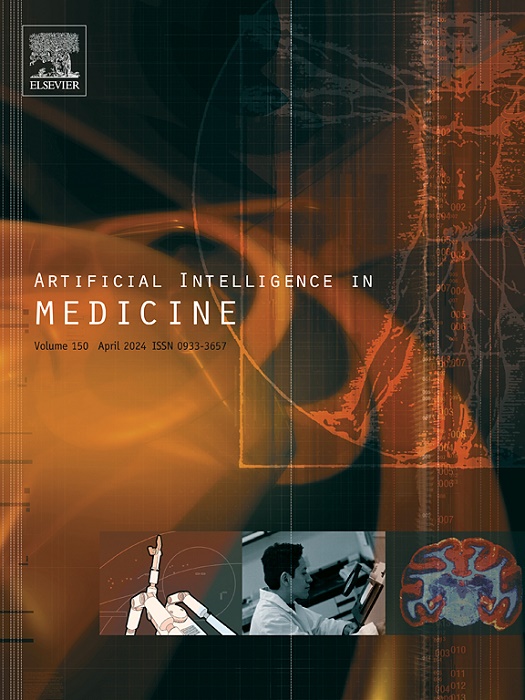Causal inference model for accurate medical diagnosis in Coronary Artery Bypass Graft operation
IF 6.2
2区 医学
Q1 COMPUTER SCIENCE, ARTIFICIAL INTELLIGENCE
引用次数: 0
Abstract
Coronary Artery Bypass Grafting (CABG) is the most commonly performed cardiac surgery. Predicting postoperative complication risks for patients undergoing CABG is crucial for medical professionals. Considering the susceptibility of traditional models to confounding factors and the scarcity of medical data, it is necessary to design a model that can truly capture the cause-and-effect relationship between the disease and its underlying causes and achieve high accuracy even with limited data. In this paper, a novel Causal Inference Operation Risk Predictor (CIORP) is proposed. We construct a Structural Causal Model (SCM) that demonstrates how two confounders influence the model’s predictions. Then we utilize the backdoor adjustment strategy to control potential confounders from pre-operative information and non-causal intraoperative data. In parallel, capitalizing on few-shot learning techniques, we initiate pre-training using categories with ample samples to extract essential features. Subsequently, we fine-tuned our model on sparse sets of labeled data, facilitating accurate predictions in scenarios with limited annotated samples. The experimental outcomes demonstrate that our model surpasses most existing methods in the internal Electronic Health Record (EHR) of CABG patients, effectively predicting low cardiac output, new-onset atrial fibrillation, perioperative myocardial infarction, and cardiac arrest or ventricular fibrillation post-operation. Our work effectively mitigates the impact of confounding factors, allowing the model to make accurate predictions with minimal medical data.
冠状动脉搭桥术医学诊断的因果推理模型
冠状动脉旁路移植术(CABG)是最常用的心脏手术。预测冠脉搭桥患者术后并发症风险对医学专业人员至关重要。考虑到传统模型容易受到混杂因素的影响,以及医疗数据的稀缺性,有必要设计一种能够真正捕捉疾病及其根本原因之间因果关系的模型,在数据有限的情况下也能达到较高的准确性。提出了一种新的因果推理操作风险预测器(CIORP)。我们构建了一个结构因果模型(SCM),展示了两个混杂因素如何影响模型的预测。然后我们利用后门调整策略从术前信息和非因果术中数据中控制潜在的混杂因素。同时,利用少量学习技术,我们开始使用具有充足样本的类别进行预训练,以提取基本特征。随后,我们在稀疏的标记数据集上微调了我们的模型,促进了在有限注释样本的情况下的准确预测。实验结果表明,我们的模型超越了大多数CABG患者内部电子健康记录(EHR)的现有方法,可以有效预测低心输出量、新发心房颤动、围手术期心肌梗死以及术后心脏骤停或心室颤动。我们的工作有效地减轻了混杂因素的影响,使模型能够以最少的医疗数据做出准确的预测。
本文章由计算机程序翻译,如有差异,请以英文原文为准。
求助全文
约1分钟内获得全文
求助全文
来源期刊

Artificial Intelligence in Medicine
工程技术-工程:生物医学
CiteScore
15.00
自引率
2.70%
发文量
143
审稿时长
6.3 months
期刊介绍:
Artificial Intelligence in Medicine publishes original articles from a wide variety of interdisciplinary perspectives concerning the theory and practice of artificial intelligence (AI) in medicine, medically-oriented human biology, and health care.
Artificial intelligence in medicine may be characterized as the scientific discipline pertaining to research studies, projects, and applications that aim at supporting decision-based medical tasks through knowledge- and/or data-intensive computer-based solutions that ultimately support and improve the performance of a human care provider.
 求助内容:
求助内容: 应助结果提醒方式:
应助结果提醒方式:


